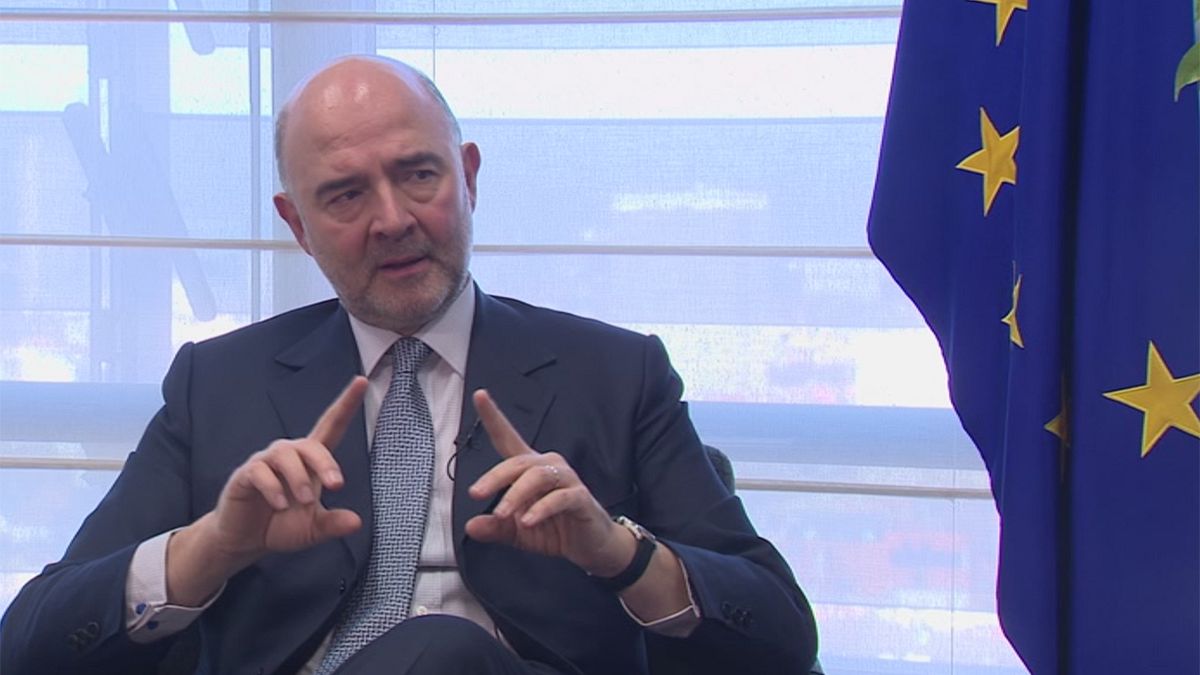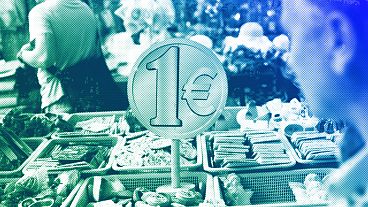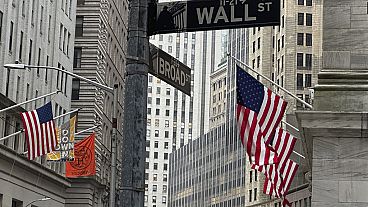Pierre Moscovici is the EU economy commissioner.
Pierre Moscovici is the EU economy commissioner.
He spoke to euronews’ Efi Koutsokosta to discuss Brexit and the Greek debt talks.
Euronews, Efi Koutsokosta: How could Brexit really affect the european economy? Could we see the EU being smaller and smaller?
Pierre Moscovici, EU Economic and Financial Affairs Commissioner: We respect the brexit but we regret the vote because obviously, yes, we were 28 with a very important and strong member state, but it will be still a very important economic bloc among the leaders in the world. If I look at the figures, it is clear that growth in the UK will be reduced, maybe for this year less than we expected, to 1.5 percent when our forecast for the UK was 2 percent six months ago and 1.2 percent in 2018. This will have an impact of lower importance for the rest of the EU. It’s the fifth year in a row with growth all over Europe and the first time for the last three years, with all the countries in Europe with positive growth. So, let’s go on with that way.
Euronews, Efi Koutsokosta: If you see the context of all this. We see Trump’s victory in the United States, then we have the rise of populist anti-EU parties in the European Union and then we see still some countries such as Greece and Italy still struggling to recover. What steps should be made in the Eurozone in order to protect the unity, to protect the single currency?
Pierre Moscovici, EU Economic and Financial Affairs Commissioner:Obviously there are risks, geopolitical risks, as well inside the EU which is brexit and outside the EU and the most important for us is obviously the new situation in the United States. As far as the Eurozone is concerned and the EU as a whole the EU Commission is preparing a white paper for the 60 years of the Anniversary Treaty of Rome in March 2017. For the Euro, I think we need to add, to the situation which today is protective for our economies, more dynamism, which means more institutions as a Finance Minister for the Eurozone responsible in front of the European Parliament bu also a fiscal capacity for the Eurozone which will make it capable of reducing divergence inside the Eurozone and this could be made as well for investing more but also to fight unemployment. These are the future guidelines of the Eurozone if we want it to be not only a guarantee of stability but also a guarantee of progress, economic progress and convergence.



